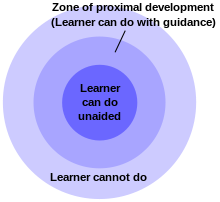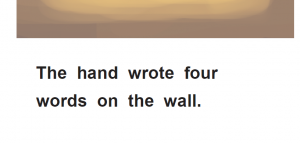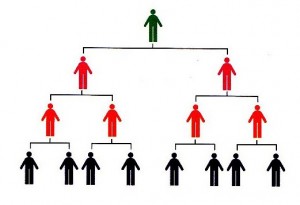In 1932 Soviet psychologist Lev Vygotsky introduced a theory of developmental readiness he called Zone of Proximal Development (ZPD). You might be wondering, “What in the world does ZPD have to do with parenting?” Well, I’m glad you asked.
From teaching a two year old to eat at the table with the family to helping your child ride a bike, parents naturally employ an understanding of ZPD. We intuitively know that our children must first master finger foods before handling glassware and steak knives. We also know that learning to ride a bike will require countless trips up and down the block, jogging beside our child, holding onto the seat and handlebars as they learn to balance, pedal, and brake with confidence. Those incremental steps in mastering new skills, with the support of a more proficient mentor, are a picture of ZPD. Regardless of what we’re learning, Zone of Proximal Development Really Does Matter.
The graphic above helps us understand the concept of Zone of Proximal Development more fully. Consider the 5 year old who is learning to ride his two-wheeled bike. He can ride his bike with training wheels (what the learner can do unaided) but he cannot ride without his training wheels yet. He needs the support of a more proficient mentor. With a little bit of assistance (but not yet independently), the learner is successful with the new task.
Zone of Proximal Development is critically important when teaching children to read and write. As a classroom teacher, I met many parents who assumed that any book from the children’s section of the library would be beneficial in teaching their child to read.
Do you remember Little Golden Books from your childhood? Let’s take a look at the first page of text from The Lone Ranger. While the publisher’s information recommends this book for children 2-5 years of age, the text is actually written at a 2nd grade reading level. This book may be suitable for a 2-5 year old as a Read Aloud but asking a child in kindergarten or first grade (who is just learning to read) to read this book independently would cause undue stress. This book is not within a very young reader’s ZPD.
You might have heard the term leveled readers. Leveled readers refer to books that are written with a child’s Zone of Proximal Development in mind. Leveled readers are meant to introduce children incrementally to new challenges in their reading. With a little bit of support, the child can successfully read a leveled text. When books are chosen based on a child’s ZPD, reading becomes an opportunity for a little bit of teaching and a whole lot of praise. We want to avoid stressful sessions that highlight what a child can’t yet do.
Below is a snapshot of the text from Me and Thee Studios’ “The Writing on the Wall”. The high frequency words and new spellings in leveled readers are specifically controlled to support young readers as they progress through the intricacies of reading development.
By the way – if you haven’t checked out Me and Thee Studios’ Early Reader Collection, you’ll want to! Our leveled readers are perfect for home discipleship, whether you home school your children or not.
In writing, try “sharing the pen” with your child. In short, hold your child responsible for everything you know they can do independently. If your child has mastered all short vowel and consonant sounds, help him “stretch” the sounds orally and write the letters for CVC (consonant-vowel-consonant) words like hot, run, cap, and him. Also, hold your child accountable, with support, for the new things they have been introduced to. However, if you know your child hasn’t yet learned the ee ( as in the word see) or the ea (as in the word eat), add those letters for your child in their writing. “Share the pen” to support their progress in a non-threatening experience.
As you consider your child’s ZPD, are there changes you need to make that will make your reading and writing time together more pleasurable for both of you? Join the conversation by replying at the top of this post.
Before you leave the site, why not follow my blog (top, right of this post)? It’s quick and easy
For more from Marea, check out Me and Thee Studios’ faith based leveled readers for 1st-2nd graders at http://www.meandtheestudios.com/early-reader-collection.html.




